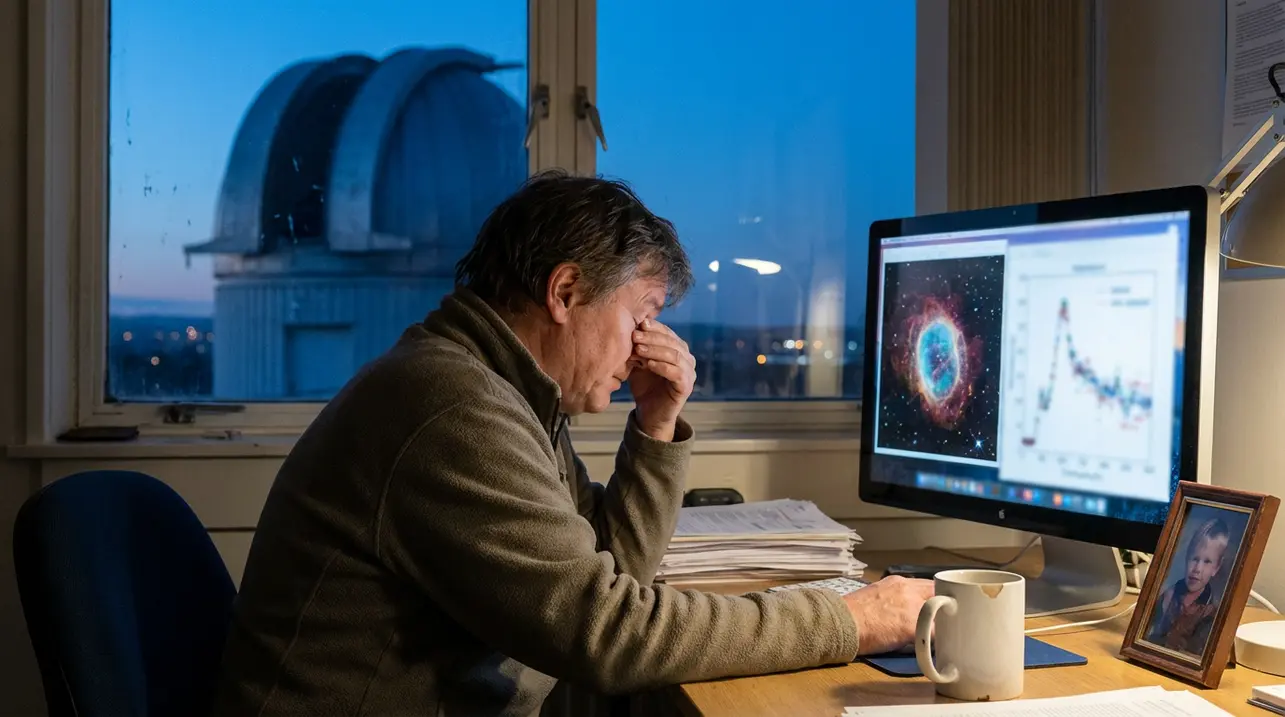
SciencebiologyEvolution and Ecology
Love Against Probability
TH
Thomas Green
13 hours ago7 min read
You wouldn't have bet on it, this battered rock orbiting a star from the discount bin of the universe, you wouldn't have bet that it would bloom mitochondria and music, that it would mushroom mountains and minds, and the hummingbird wing whirring a hundred times faster than your eye can blink, and your eye that took 500 million years from trilobite to telescope, and the unhurried orange lichen growing on the black boulder two hundred times more slowly than the continental plates beneath are drifting apart, and the marbled orca carrying her dead calf the length of the continent, carrying on in a display of grief that echoes across the food chain. The sheer improbability of our existence here is a cosmic joke with a profound punchline.Consider the numbers: for life to emerge from the primordial soup, against the cold vacuum of space and the relentless pull of entropy, is like expecting a perfectly formed sonnet to assemble itself from a dictionary explosion. We are the product of a series of wildly fortunate accidents, from the precise calibration of fundamental forces that allow for complex atoms to the Jupiter-like body that likely shielded our early planet from catastrophic asteroid impacts, a celestial guardian enabling evolution's slow, meticulous work.The hummingbird's wing, a marvel of biological engineering beating with a frenzy that defies our perception, operates on principles of fluid dynamics that engineers still strive to replicate. Your own eye, that intricate organ of sight, is a living fossil record, its blueprint refined over half a billion years from the simple light-sensitive patches of ancient trilobites to the sophisticated instrument that now peers back at the stars from which its components originally came, stardust contemplating itself.And then there are the timescales, the truly humbling symphonies of slowness. The orange lichen clinging to its granite throne is a monument to patience, its growth so incremental that it makes the stately, inexorable drift of tectonic plates—the very foundation of our world's geology—seem like a sprint.These plates, shifting at roughly the speed your fingernails grow, rearrange continents over epochs, yet the lichen outpaces their separation with a stillness that speaks to a different kind of vitality. Against this backdrop of deep time and astronomical chance, the story of the orca, Tahlequah, becomes not just a sad anecdote but a cosmic parable.Her 17-day, 1,000-mile journey of mourning, a testament to a consciousness and a capacity for love that we once believed was ours alone, challenges the very notion of what it means to be a successful product of evolution. In a universe seemingly governed by probability and survival, her actions were a net loss of energy, a defiance of pragmatic logic.It was a performance of love, a force as fundamental and inexplicable as gravity, written not in the laws of physics but in the grammar of life itself. This is the ultimate rebellion of our little world: that against all odds, in the face of cosmic indifference, it has produced not just life, but meaning; not just complexity, but compassion.The universe may be vast and mostly empty, but here, on this 'battered rock,' it has learned to feel, to grieve, and to love. That is the bet we didn't just win; it's the one we are living, every single day.
#evolution
#biology
#natural history
#life on earth
#featured
#mitochondria
#consciousness
#deep time
#love
Stay Informed. Act Smarter.
Get weekly highlights, major headlines, and expert insights — then put your knowledge to work in our live prediction markets.
Related News
Comments
Loading comments...
© 2025 Outpoll Service LTD. All rights reserved.